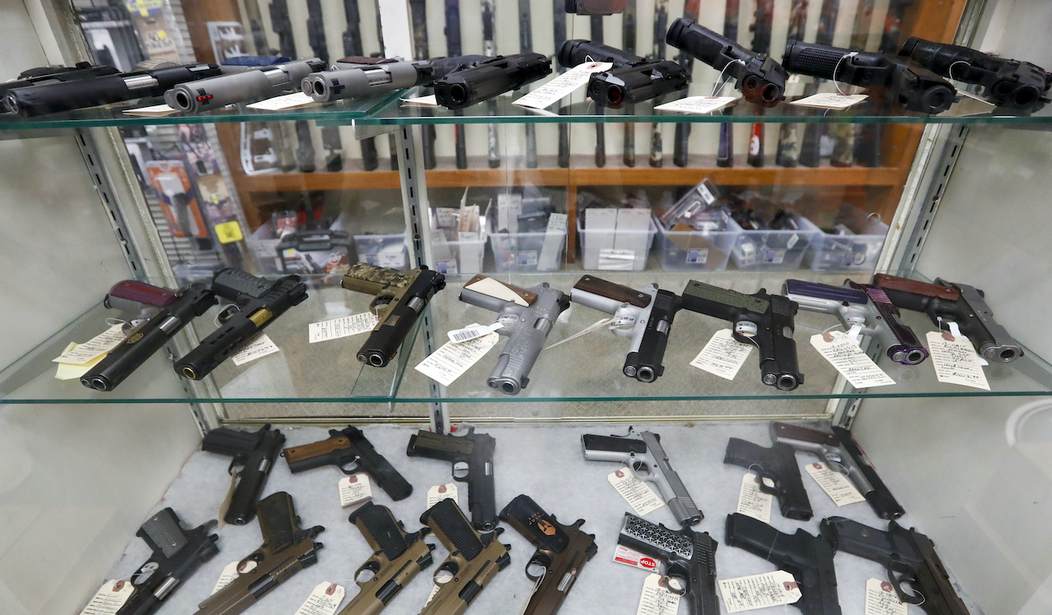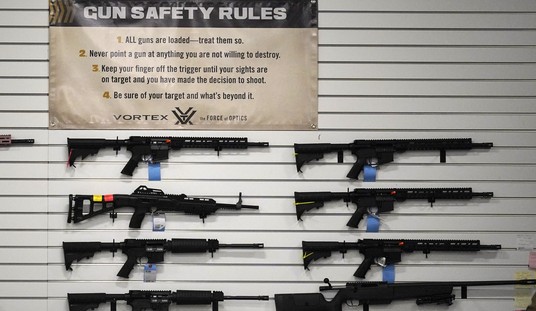If you’re convicted of a felony offense, even a non-violent crime, that’s an automatic loss of your Second Amendment rights. But a federal judge in Texas says that those who’ve so far only been accused of a felony still possess the right to purchase a firearm, and on Monday the judge tossed out charges against a man who obtained a handgun while under indictment for burglary.
U.S. District Court Judge David Counts cited the Supreme Court’s ruling in New York State Rifle & Pistol Association v. Bruen in his decision, writing that he has not been able to find any historical precedent for barring those accused of a crime from exercising their constitutionally-protected rights.
In the same ruling, Counts both tossed a charge of obtaining a firearm while under indictment and noted it was unknown “whether a statute preventing a person under indictment from receiving a firearm aligns with this Nation’s historical tradition of firearm regulation.” Also unknown, he said, is “the constitutionality of firearm regulations in a post-Bruen world.”
“This Court does not know the answers; it must only try to faithfully follow Bruen’s framework,” he said.
In an earlier filing, the U.S. attorney’s office said the law to prohibit those under felony indictment from obtaining guns does not interfere with the Second Amendment “because it does not disarm felony indictees who already had guns and does not prohibit possession or public carry.”
“The Second Amendment has always allowed laws restricting the gun rights of groups viewed by legislatures as posing a public-safety risk, including those accused but not convicted of wrongdoing,” the prosecution wrote.
Well, if that were the case you’d think Counts would have been able to find some evidence of that in the historical record. Instead, the judge found that while the laws barring those convicted of felony offenses are longstanding and comport with the constitutional protection of the right to keep and bear arms, there’s a big difference between a conviction and an accusation.
The Texas case arose out of the conviction of a man who had purchased a gun while under indictment and lied about it during his background check, according to Counts’ ruling. Last year, while indicted on charges of burglary and missing court dates, Jose Gomez Quiroz tried to buy a semi-automatic pistol at an Alpine store. He denied he was under indictment on his background check form, and, after a seven-day wait for approval, picked up his new gun.
Days later, the federal system alerted that the purchase was illegal. He was convicted on the same day of the Supreme Court ruling. Almost immediately, he appealed, claiming the New York ruling invalidates the law he broke. Counts agreed.
“The Second Amendment is not a ‘second class right,’” he ruled. “No longer can courts balance away a constitutional right.”
Oddly, it doesn’t sound like Quiroz was indicted for lying on the Form 4473 that he filled out at the time he purchased the pistol. Instead, the charge was “obtaining a firearm under indictment.” Even if those accused but not convicted of a crime still possess the right to keep and bear arms, making a false declaration on the Form 4473, as Quiroz allegedly did when he failed to disclose his indictment, is a criminal offense in and of itself…. albeit one that is rarely pursued in court (even when the allegations don’t involve the son of a high profile politician).
We’ll have to see if the Fifth Circuit Court of Appeals agrees with Counts about the scope of the Second Amendment’s protections, but I’m glad to see the judge did his best to adhere to the Supreme Court’s admonition that the Second Amendment is not a second-class right and must be treated with fundamental importance. As for Mr. Quiroz, it sounds like he caught a break with this case, but he still has to deal with his burglary charges, and depending on the outcome, he could still end up being prohibited from legally owning or buying a gun in the future.









Join the conversation as a VIP Member